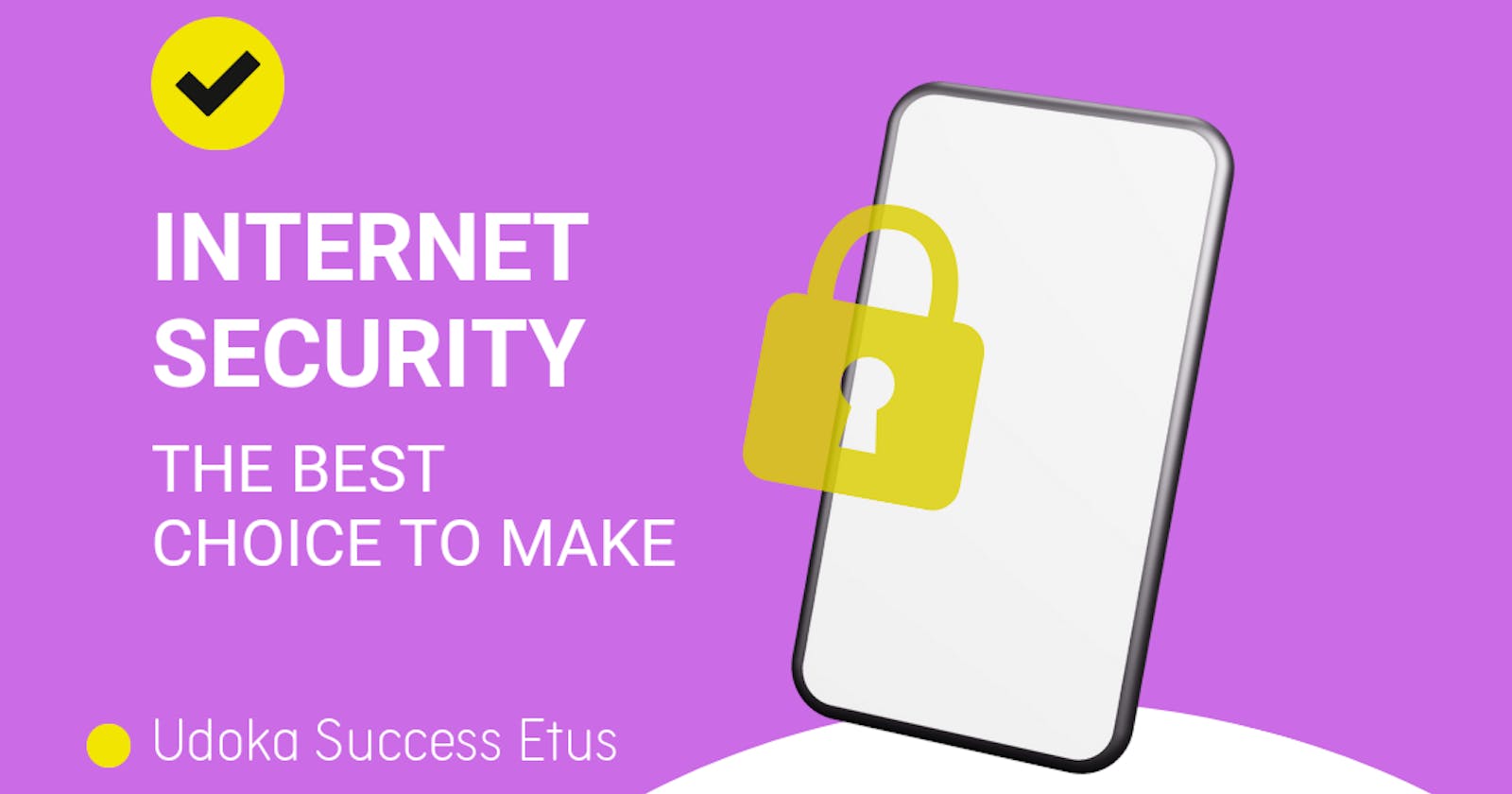Table of contents
No headings in the article.
In this world of technology, we live our day-to-day lives shuffling the Internet. But the question is, are you careful about what you do on the internet?
In this article, I will be giving you some tips on how to stay safe on the internet but before that, let's look at some definitions of terms
What Is The Internet?
Oxford dictionary describes the internet as a global computer network providing a variety of information and communication facilities, consisting of interconnected networks using standardized communication protocols.
What Is Internet Safety?
Internet safety is the activity of adhering to practical standards, comprehending contemporary technology, and safeguarding your digital gadgets so you may protect yourself from the malicious aspects of the online world. You need a solid understanding of the Internet, its contents, functions, and uses to practice internet safety.
What Is Malware?
This simply means malicious software. It is designed to steal data and damage or destroy computer systems. Examples include viruses, worms, Trojan viruses, spyware, adware, and ransomware.
What Is Phishing Attack?
Phishing is a type of social engineering attack often used to steal user data, including login credentials and credit card numbers. It occurs when an attacker, masquerading as a trusted entity, dupes a victim into opening an email, instant message, or text message.
One of the most prevalent security issues that people and businesses confront in protecting their data is phishing attacks. Hackers use email, social media, phone calls, and any other means of contact they can access to steal sensitive data, including passwords, and other private information.
Some Of The Phishing Techniques Used By Attackers Are:
• Embedding a link in an email that sends you to an insecure website and seeks personal information
• Installing a Trojan through a malicious email attachment or ads which enables the hacker to take advantage of security gaps and collect critical data.
• Changing the sender address in an email to make it appear like a trustworthy source is requesting sensitive information
• Calling a recognized firm vendor or IT department and pretending to be someone else to get some information.
Having known these things, how then can you stay safe while using the Internet? To be safe on the internet, you need to safeguard your PC and your Email
Tip on how to secure your PC while using the Internet
• Use anti-malware app
• Use a pop-up blocker with your browser
• Keep your PC updated
• Use a serious antivirus software
• Change your email passwords regularly
• Open only emails you trust
• Regularly scan your PC
• Do not share your passwords
• Use multiple security layers
Tips on how to secure your Email
• Create strong passwords ( do not use same password across another site)
• Use multi-factor authentication
• Take phishing seriously. Don’t respond to, click links, or open attachments in emails that appear suspicious.
• Don’t click email links! Some links display a recognizable domain name but redirect the user to a different malicious domain.
• Avoid public WI-FI while checking emails
Conclusion
Our lives are product of our choices. So, to stay safe on the internet, you need to make safe choices, example of those choices are:
• Always Verify people's identities before responding to whatever they are saying.
• Always verify if a link is safe. (HTTP and HTTPS ) The S indicates that the website uses something called secure socket layers, which is essentially an extra layer of security that protects information as it goes from the computer to the website’s servers.)
• Keep protecting privacy.
• Identifying cyberbullying.
• Use ad blockers on your devices
• Use Virtual Personal Network(VPN)
REFERENCE
